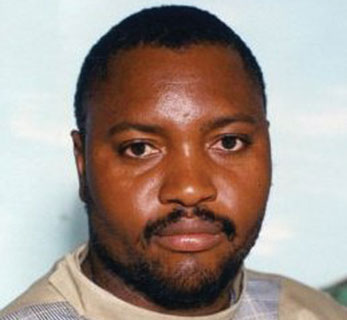
On January 18 2005 while addressing the United States Senate Committee on Foreign Relations, the then US Secretary of State Condoleezza Rice coined the phrase “outposts of tyranny” in collective reference to six countries, among them Zimbabwe.
The Secretary of State felt that the six nations had earned that kind of reputation due to their well documented intolerance towards political dissent.
Rice had probably taken a hint from her boss President George W Bush who had earlier declared Iran, Iraq and North Korea as the axis of evil.
Rice named Zimbabwe, Belarus, Cuba, Iran, Burma, Iran and North Korea as outposts of tyranny.
The ranking saw. Iran and North Korea suffer double jeopardy as they appeared in both categories of ill-repute.
Rice did not invent an imaginary pariah state called Zimbabwe. She gave her truthful views on the Zimbabwe that has been born out of Mugabe’s tyranny.

She was candid about the outpost of tyranny that Mugabe has carved out with the culpable approval of acolytes, goons and others of his political ilk. Rice spoke her honest truth.
It was an honest truth that finally came after Zimbabweans had endured many years of tyranny with no one mentioning it.
- Chamisa under fire over US$120K donation
- Mavhunga puts DeMbare into Chibuku quarterfinals
- Pension funds bet on Cabora Bassa oilfields
- Councils defy govt fire tender directive
Keep Reading
It is a pity that it took the death of a couple of white farmers to awaken the world to Mugabe’s perfidy.
It is a pity that deaths of thousands of black Zimbabweans who perished from Mugabe’s sword did not galvanise the Western world against him.
It is sad that those who consider themselves guardians of morality only consider the spilling of blood of white people as abhorrent whilst the spilling of black blood can be ignored as another statistic.
In Rice’s prudence, Zimbabwe only became an outpost of tyranny after Mugabe delved into the land ownership quandary and resolved it in his own terms.
The fact that Mugabe had progressively taken the country on a downhill tumble since independence was of no consequence.
Rice was only armed with knowledge that Mugabe had turned the tables to punish the mainly white commercial farmers for pledging financial and moral support to the nascent MDC.
It is universally acknowledged that Mugabe hovering within range of dictator-scanning radar after he reacted in sour-loser fashion to embarrassing defeat in the constitutional referendum of 2000.

Mugabe could not take the defeat like a gentleman. He decided to exert strong-arm tactics against perceived opponents in the guise of addressing an historic injustice that meant less than 1% of the country’s population owned 70% of the country’s fertile and arable land.
Of course land ownership had glaring disparities that required correcting. Mugabe quickly assumed the onus to do so and in the process he beefed up his CV as a tyrant.
It should be born in mind that a president does not become a tyrant by seeking to correct an injustice.
It is possible that Mugabe became a tyrant from far back. In all probabilities he was that type of dictator the West could tolerate for as long as he protected their interests.
Mugabe was as good as Mobuto Sese Seko of Zaire, Kamuzu Banda of Malawi and others for as long as he maintained cordial relations with the west.
The West chose to ignore his political indiscretions against black Zimbabweans because he protected their interests.
The US did not bother to admonish Mugabe when he treated the populations of Matabeleland and parts of the Midlands to the wickedness of North Korean trained killers.
The shock and awesome operations that defined the military operations against late Joshua Nkomo’s people taught Mugabe a life-long lesson on the dividends that accrue from cruelty. Mugabe learnt a lesson that the world was too busy fighting an undeclared cold war to notice his “little massacres”.
Mugabe realised that he could escape censure and get away with murder by systematically eliminating his opponents while paying political servitude to the West.
As a result, the West did not find it morally appropriate to hold Mugabe to account for the many thousands of black Zimbabweans killed in cold blood for not supporting Zanu PF.
On the contrary, Mugabe was feted in Western capitals as his killer brigade significantly culled the population of Matabeleland and parts of the Midlands, The British knighted him, the Americans gave him honorary doctorates and all facets of the western world admired him for reconciling with those who were his enemies during the war of liberation.
Mugabe’s little fight with white farmers earned him a bad name.
Instead of just taking the land from few whites, Mugabe allowed the reclamation process to degenerate into a bloody political and economic farce.
The endresult of his quest for restitution saw the few white land owners being replaced by yet a tinier clique from the so-called breed of chefs (a non-culinary breed of the rotund, the stinking rich and the politically well-placed).
As a matter of fact, Mugabe did not learn to become a tyrant when he lost the referendum of 2000.
He was already one but because he was an ally of the west, his transgressions against his black fellow countrymen could be swept under the carpet.
In Western eyes, black blood is less sacrosanct than white blood.
That is why in Rice’s country, blacks are gunned down like animals with little or no consequences.
This is why the black-on-black xenophobic violence in South Africa is of no concern.
Masola waDabudabu is a social commentator










